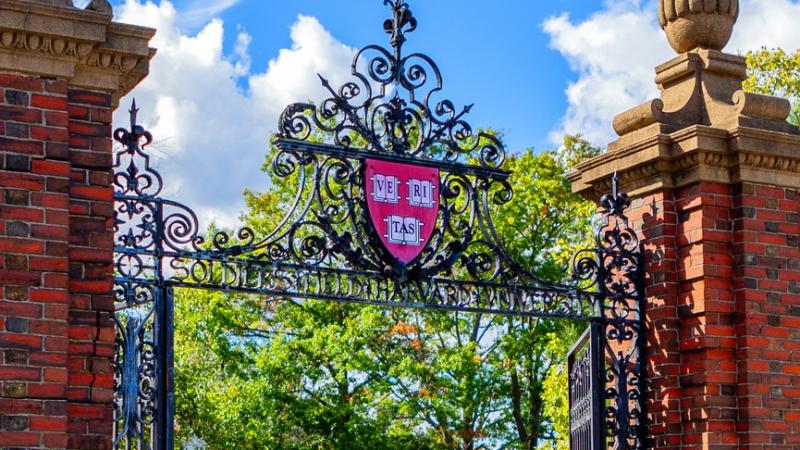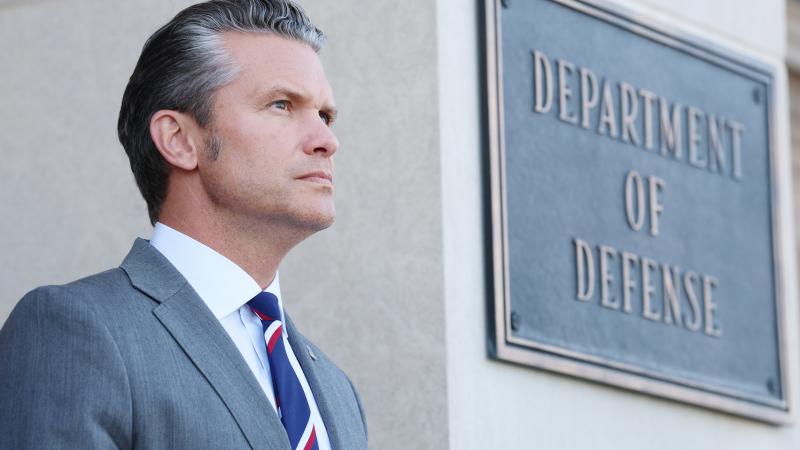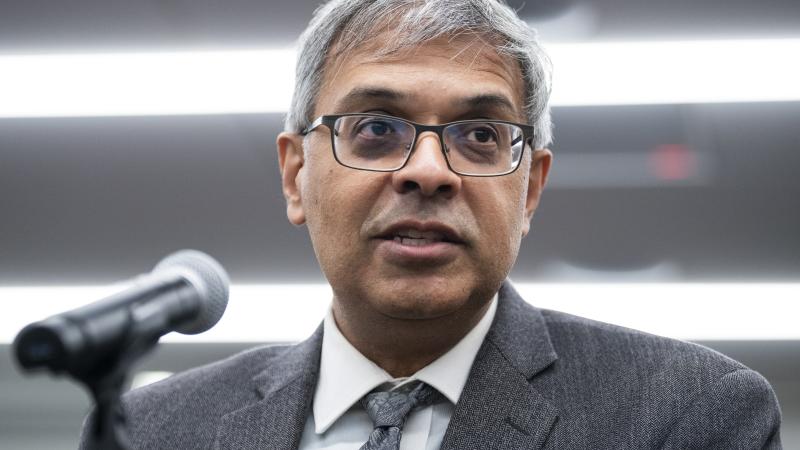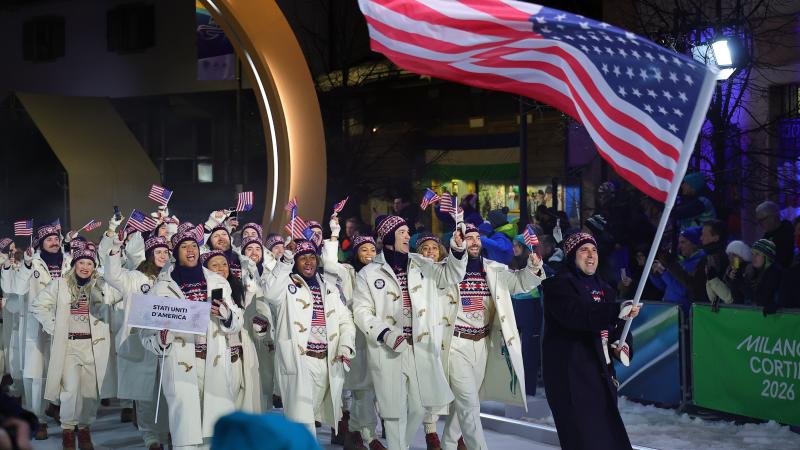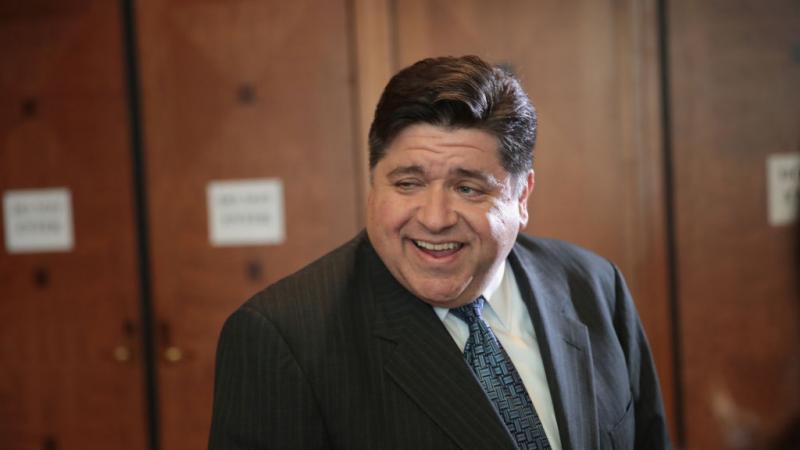Congressional leaders brace for TikTok deal, warn Trump not to deviate from divestment law
As the president negotiates the contours of the deal between Washington and Beijing, lawmakers underscore requirements of the 2024 law requiring separation between China-based ByteDance and TikTok in the United States. The president issued a new executive order on Tuesday pushing the divestment deadline back again to December 16.
As President Donald Trump grows closer to announcing a deal with the Chinese to keep the popular social media platform TikTok active in the United States, Congressional leaders brace for the terms and are warning the president to adhere to the conditions they set out in the Protecting Americans from Foreign Adversary Controlled Applications Act, that was tucked into that term's Consolidated Appropriations Act.
Last year, Congress passed and President Joe Biden signed into law the bill requiring TikTok’s parent company, the China-based ByteDance, to either divest itself of the popular video sharing app or face a ban on operations in the United States.
The bill aimed to address concerns that the Chinese company exercised the ability to weaponize the app against the American people on behalf of the Chinese Communist Party’s goals. Indeed, the company maintains a closer relationship to the party than it had long claimed, according to former employees who said they regularly send American data to China.
Additionally, there are longstanding concerns that the Chinese could exploit the app’s algorithm to influence public opinion in the United States.
Focus on whether Beijing would have control over components of the popular app
Now, the House and Senate Republicans that pushed for the legislation to force a TikTok divestment, are bracing for the contours of a deal that President Trump expects to announce after a phone call with Chinese leader Xi Jinping on Friday. The lawmakers say that they want the deal to adhere to the law they passed.
Specifically, the lawmakers are expressing concern about a claim from Chinese negotiators that the deal would involve “licensing” the ByteDance algorithm to the new American successor of TikTok. This condition appears to be unacceptable to the lawmakers that championed the TikTok bill because it would provide an avenue for Beijing to retain significant control over the core components of the application.
Chief among the lawmakers raising the alarm is the Chairman of the House Select Committee on the Chinese Communist Party, the panel which led the effort to ban the app.
“Based on initial reports, I am concerned the reported licensing deal may involve ongoing reliance by the new TikTok on a ByteDance algorithm and application that could allow continued CCP control or influence,” Chairman John Moolenaar said in a statement.
On Monday, President Trump suggested that the United States and China had reached a preliminary agreement on ByteDance’s divestment of TikTok.
Details of Trump's negotiated deal to be released Friday
"The big Trade Meeting in Europe between The United States of America, and China, has gone VERY WELL! It will be concluding shortly," Trump posted on Truth Social. "A deal was also reached on a 'certain' company that young people in our Country very much wanted to save. They will be very happy! I will be speaking to President Xi on Friday. The relationship remains a very strong one!!! President DJT."
Search Engine developer Backlinko claims that TikTok has 1.12 billion monthly active users worldwide, 170 million of whom reside in the U.S. Reportedly, TikTok has 82.2 million daily active users in the U.S.
Few official details of the potential arrangement have been made public. The White House is expected to deliver an explanation of the deal on Friday after the president speaks with his Chinese counterpart, however, statements from the Chinese and media reports have provided a glimpse into the negotiations.
The Wall Street Journal reported earlier this week that the current plan would be to spin off TikTok’s U.S.-based business from ByteDance to be controlled by an investor consortium that would include Oracle, Silver Lake and Andreessen Horowitz. The deal would produce a new entity in which U.S. investors would hold a “roughly 80%” stake.
The American-dominated board would also have one member appointed by the U.S. government in line with a trend in President Trump’s recent deals that includes either a stake or significant representation for the state as a guarantor.
These terms aim to satisfy the law passed by Congress which requires ByteDance to divest of its controlling stake in the popular application. However, if the Chinese company is allowed to retain ultimate control of the algorithm on which the app is based, that could violate another key stipulation of the law.
Is the "license" really a "leash"?
Wang Jingtao, deputy head of China's cyberspace administration, said at a press conference that the preliminary agreement included ByteDance "licensing the algorithm and other intellectual property rights.”
He also said “The Chinese government will, according to law, examine and approve relevant matters involving TikTok, such as the export of technology as well as the license use of intellectual property.”
This arrangement could come into conflict with a provision of the law passed by Congress. The “qualified divestiture" prescribed by lawmakers in the 2024 legislation includes a requirement that the president determine “through an interagency process” that the deal sufficiently severs a relationship between the U.S.-based operations and any “foreign adversary controlled application.”
Rep. Lahood: “Any connection to the CCP is a non-starter"
This includes “any cooperation with respect to the operation of a content recommendation algorithm or an agreement with respect to data sharing.”
Lawmakers are sure to scrutinize whether the official terms of the deal go so far as to violate the conditions Congress set into law last year. A licensing agreement may leave the door open to Chinese Communist Party influence, which is why the law was passed in the first place.
“Any connection to the CCP is a non-starter,” Rep. Darin Lahood, R-Ill., another member of the CCP committee, told Punchbowl News on Thursday. The congressman further said that he and other members have been “very clear” about the nonnegotiable elements of the TikTok law with the Trump administration, the outlet reported.
The White House did not respond to an inquiry from Just the News about the negotiations over the algorithm.
Since congressional scrutiny on the app first began years ago, Beijing has been reluctant to allow the algorithm to fall permanently into American hands. In 2020, Beijing listed ByteDance’s social media algorithm on a restricted technologies export list, which designates certain technologies as vital to national security and requires a review before any export or sale can take place.
Expert says TikTok is a "potent weapon"
“The Chinese Communist Party won't give up its control of the TikTok algorithm because it's one of Beijing's most potent weapons against Americans,” Michael Sobolik, a Senior Fellow at the Hudson Institute who specializes in U.S.-China relations, told Just the News earlier this year. “Any deal that leaves the algorithm in Beijing's hands would be illegal and unsafe.”
A study completed earlier this year found TikTok suppresses anti-China content and influences user opinion on the communist country’s human rights record and society, likely by manipulating its algorithm, Just the News previously reported. This makes the app a potent tool for Beijing to influence public opinion in the United States. TikTok disputed the findings.
Prior reports also indicate that TikTok is also much closer to its Chinese parent company, and by extension to Beijing, than it has continuously claimed, leaving data on Americans vulnerable. Several former employees of TikTok based in the United States, for example, last year claimed the company cooperated closely with its Chinese parent ByteDance and that public claims of independence were not entirely accurate, Fortune reported.
U.S. citizens' private data sent to China, numbering hundreds of thousands of files
One former employee, Evan Turner, claimed he sent spreadsheets to ByteDance in China full of private data about hundreds of thousands of U.S.-based users of the TikTok app, including names, email addresses, IP addresses, location and demographic information for the purpose of improving algorithms but where it would be vulnerable to the Chinese government.
President Trump originally spearheaded efforts to ban the app in his first term. Congress passed legislation targeting TikTok last year, citing security and privacy concerns related to the application, its Chinese ownership, and algorithm. ByteDance challenged the law, but the Supreme Court unanimously upheld the law. After his election, Trump pivoted to trying to save the platform in a way that would allow it to remain operational in the U.S., which by law requires severing the platform from Chinese control.
Since then, he has extended the deadline for a deal to save the application, despite the law permitting only one 90-day extension. In anticipation of direct talks with Chairman Xi, Trump issued a new executive order on Tuesday pushing the divestment deadline back once again until December 16.
“It’s been a long time, and I’ve not been a fan of not enforcing the law,” Sen. Josh Hawley, R-Mo., said of the extensions, according to PunchBowl News.
The Facts Inside Our Reporter's Notebook
Links
- TikTok
- Protecting Americans from Foreign Adversary Controlled Applications Act
- Consolidated Appropriations Act
- Moolenaar said in a statement
- reached a preliminary agreement
- Trump posted
- reported earlier this week
- said at a press conference
- prescribed by lawmakers in the 2024 legislation
- told Punchbowl News
- listed ByteDanceâs social media algorithm
- Senior Fellow at the Hudson Institute
- TikTok suppresses anti-China content and influences user opinion
- Fortune reported
- claimed he sent spreadsheets
- the Supreme Court unanimously upheld the law
- said of the extensions

